Black and Scottish: 'Are you a Protestant Rasta or a Catholic Rasta?'
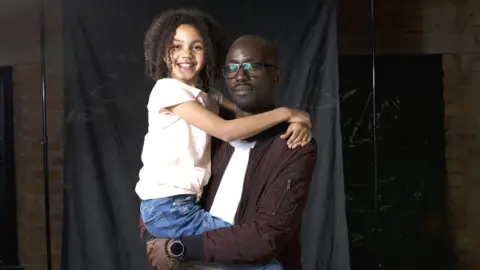 Tern/BBC Scotland
Tern/BBC ScotlandIf you are black and you grew up in Scotland, how are you supposed to feel? Black? Scottish? Or Both?
Filmmaker Stewart Kyasimire wanted to understand how his eight-year-old daughter might see herself fitting into Scottish life.
Born and bred here, she is immersed in Scottish culture.
But having grown up in the 1980s, with few black and Scottish role models, Stewart knew his experience was very different to what Yasmin's will be.
He asked prominent black Scots from three generations what it means to be black and Scottish.
Their answers feature in a new BBC Scotland documentary, which reveals how growing up black in Scotland, for a lot of people, meant feeling like the only black person in the world.
For Scotland's first Rasta councillor, who views himself as black, Scottish and Rastafarian, race was less important to his peers than the football team he supports.
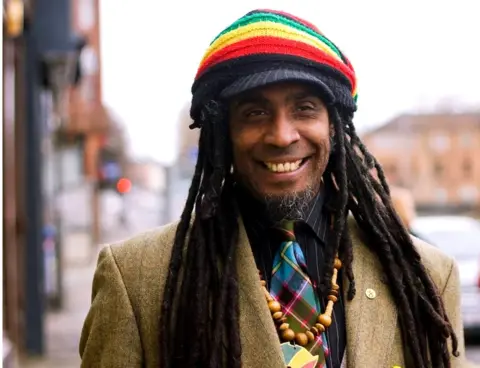 Councillor Graham Campbell
Councillor Graham CampbellSNP councillor Graham Campbell recounts peculiar questioning in his home city of Glasgow.
He said: "I have often been asked the stupid Rangers - Celtic question: 'Are you Protestant Rasta or a Catholic Rasta?'"
Mr Campbell is bringing more prominence to Black History Month at events in the city. He has worked to highlight the role of the slave trade in his city's history.
He said: "If you have a slavery name, it's inherited from the ancestors who were owned and enslaved by the people who owned these plantations. I knew Scotsmen had done that. We are like the walking exhibits in a crime scene as the evidence Scotland had that colonial past."
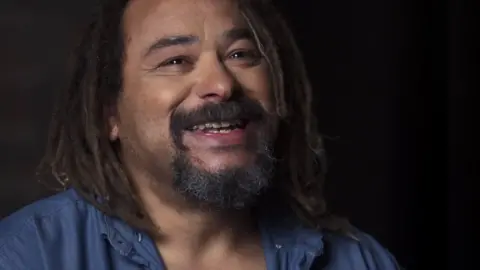 Tern/BBC Scotland
Tern/BBC ScotlandActors, TV personalities, academics, sportsmen and social media stars all said they stood out in a predominantly white country.
Comedian Bruce Fummey, from Perth, said: "You had to prove you were Scottish. You were always challenged - 'but where are you really from?'- they'd ask."
Filmmaker Stewart said the most common thing he heard when he went anywhere with his Scottish accent was: "I didn't know there were black people in Scotland."
According to the last census, African, Caribbean or Black groups made up 1% (about 36,000) of the population of Scotland, an increase of 28,000 people since 2001.
Mixed or multiple ethnic groups represented 0.4% (20,000) and other ethnic groups 0.3% (14,000) of the total population.
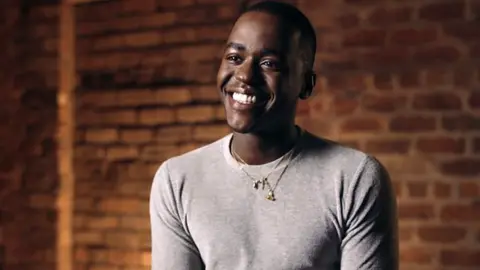 Tern/BBC Scotland
Tern/BBC ScotlandNcuti Gatwa, actor and star of Netflix hit series Sex Education, grew up in Dunfermline and Edinburgh after moving to Scotland from Rwanda in 1994.
He said his mother walked around Edinburgh thinking that "everyone looked the same".
He jokes about growing up the odd one out: "When you see another black person you say 'There's another one - I must find them and I must be friends with him'.
"I'd be like: ''I think I might be the only black person in the world!'"
But he also described the devastating racism that was the norm at school.
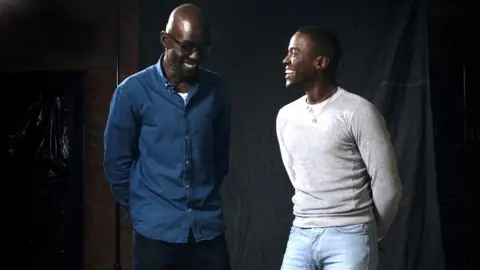 Tern/BBC Scotland
Tern/BBC Scotland"It was so normal to have racial abuse spat at you," he said. "When I moved to Dunfermline, there were a group of boys who ended up making up a racist social media page geared at me.
"I came home that day and told my mum about it and it wasn't the most empathetic of responses - it was like, 'get on with it'."
Ncuti has struggled with his national identity.
"I've always been a bit scared to say that I'm Scottish because it's almost as if people wouldn't believe me.
"I wasn't seen as the same as anyone around me because no one around me looked like me. There were no black Scottish role models."
'Fully Scottish'
Another theme from many of the contributors was that of not feeling "fully Scottish" and of not fitting in.
Many black Scots speak of being torn between two worlds.
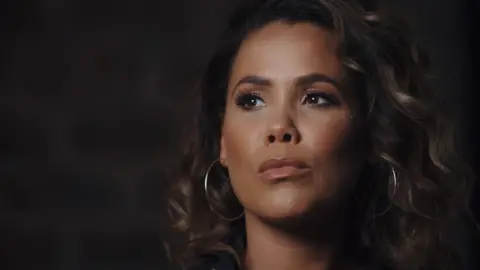 Tern/BBC Scotland
Tern/BBC Scotland Like many other mixed race people in the documentary, TV presenter Jean Johansson, from Glasgow, said it can be hard to fit in anywhere.
She said: "In Africa, I was regarded as white.
"I have never been described as white, so for Africans to see me as a white person was just weird.
"I identify most as being Scottish but I am a black Scottish woman and I am OK with that.
"To think there is anyone watching my TV shows and thinking they can be like me or do what I've done - that is everything to me - because I never had that."
Stewart's greatest hope is that by putting role models in front of his daughter, she will be able to look in the mirror and be proud to be black and proud to be Scottish.
He said: "Maybe one day she will only have to say one thing: 'I'm Scottish'."
- Black and Scottish will be shown on the BBC Scotland channel on Tuesday 8 October at 22:30
